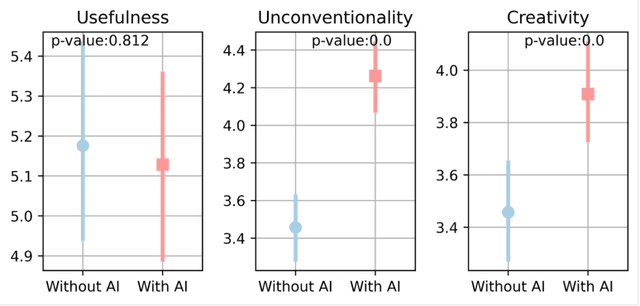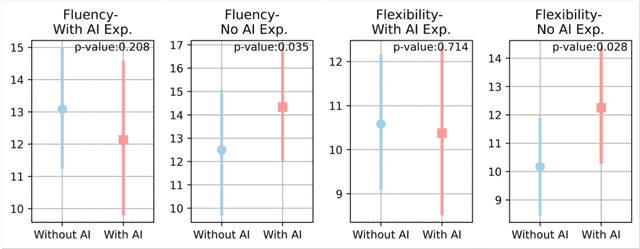Creativity in the Age of AI: Evaluating the Impact of Generative AI on Design Outputs and Designers' Creative Thinking
Paper and Code
Oct 31, 2024



As generative AI (GenAI) increasingly permeates design workflows, its impact on design outcomes and designers' creative capabilities warrants investigation. We conducted a within-subjects experiment where we asked participants to design advertisements both with and without GenAI support. Our results show that expert evaluators rated GenAI-supported designs as more creative and unconventional ("weird") despite no significant differences in visual appeal, brand alignment, or usefulness, which highlights the decoupling of novelty from usefulness-traditional dual components of creativity-in the context of GenAI usage. Moreover, while GenAI does not significantly enhance designers' overall creative thinking abilities, users were affected differently based on native language and prior AI exposure. Native English speakers experienced reduced relaxation when using AI, whereas designers new to GenAI exhibited gains in divergent thinking, such as idea fluency and flexibility. These findings underscore the variable impact of GenAI on different user groups, suggesting the potential for customized AI tools.
 Add to Chrome
Add to Chrome Add to Firefox
Add to Firefox Add to Edge
Add to Edge